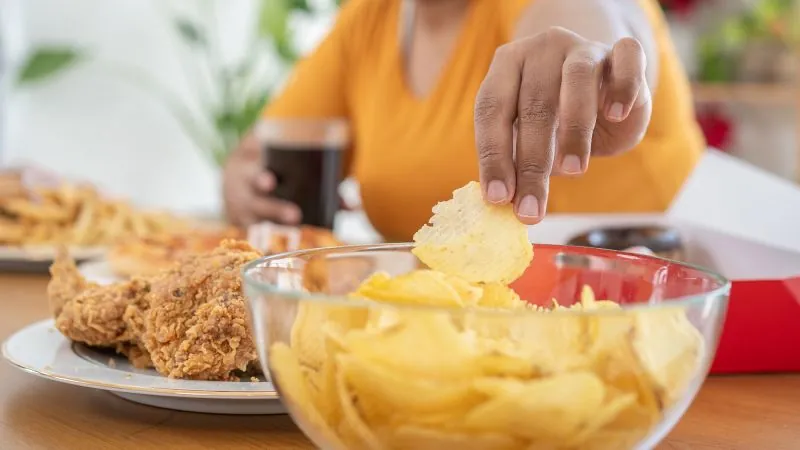
Are Ultraprocessed Foods the Hidden Culprit Behind Type 2 Diabetes? Shocking Study Reveals the Truth!
2024-09-20
Recent research has revealed alarming connections between ultraprocessed foods and an increased risk of developing type 2 diabetes.
This is causing many to rethink their dietary choices. But what are ultraprocessed foods, and why should you be concerned?
Ultraprocessed foods include familiar items like packaged snacks, sugary sodas, frozen meals, hot dogs, and even ice cream. These foods often contain numerous synthetic additives such as preservatives, emulsifiers, and artificial colors. A groundbreaking study published in *The Lancet Regional Health – Europe* examined the eating habits of over 300,000 individuals across eight European countries over an average span of 10.9 years.
Key Findings: A 17% Increased Risk
Researchers discovered that for every 10% increase in ultraprocessed foods consumed in a person's diet, there was a staggering 17% increase in the risk of developing type 2 diabetes. This striking statistic emphasizes the significance of what we choose to eat, or perhaps more importantly, what we shouldn’t be eating!
Dr. Nerys Astbury, an Oxford University expert in diet and obesity, acknowledged the need for further research while affirming that the findings contribute to a growing body of evidence linking ultraprocessed foods to a range of negative health outcomes. The concern is clear: excessive consumption of these types of foods could be detrimental to your health.
Why Are Ultraprocessed Foods So Risky?
Ultraprocessed foods have a complex array of ingredients, often including items you would never use in home cooking. Dr. Samuel Dicken, lead author of the study and clinical scientist at University College London, pointed out the paradox: while these foods are cheap, convenient, and heavily marketed, they offer little nutritional value.
“The problem is compounded by the fact that these foods are typically high in calories relative to their volume,” Dicken explained, noting that individuals might consume more calories before feeling satisfied. Increased body fat, particularly around the abdomen, further contributes to the risk of developing type 2 diabetes.
Making Healthier Choices
So, what can you do to protect yourself? Simple swaps can make a significant difference. For instance, replace sugary drinks with water, and opt for fresh fruit or unsalted nuts instead of chips. These small adjustments can lead to a healthier lifestyle over time.
Dr. Hilda Mulrooney, a nutrition expert, emphasizes that not all food processing is harmful. “Processing can improve food safety and extend shelf life, but it's the extent of processing that matters,” she states. She advises scrutinizing food labels and selecting products that closely resemble their original ingredients.
A Holistic Approach to Health
It's important to remember that diet is only one factor in the risk of developing diabetes. The lifestyle you lead also matters significantly. Factors such as physical activity, quality of sleep, and even hydration levels play crucial roles.
Want to learn more about how to make healthier choices in your diet? Explore expert-backed resources on healthy eating styles that can lead to a more vibrant life.
Conclusion
In conclusion, while ultraprocessed foods may be tasty and convenient, the potential health risks associated with their consumption warrant serious consideration. By choosing natural, less processed foods, you’re not only promoting your health but also steering toward a more balanced, wholesome life.




 Brasil (PT)
Brasil (PT)
 Canada (EN)
Canada (EN)
 Chile (ES)
Chile (ES)
 España (ES)
España (ES)
 France (FR)
France (FR)
 Hong Kong (EN)
Hong Kong (EN)
 Italia (IT)
Italia (IT)
 日本 (JA)
日本 (JA)
 Magyarország (HU)
Magyarország (HU)
 Norge (NO)
Norge (NO)
 Polska (PL)
Polska (PL)
 Schweiz (DE)
Schweiz (DE)
 Singapore (EN)
Singapore (EN)
 Sverige (SV)
Sverige (SV)
 Suomi (FI)
Suomi (FI)
 Türkiye (TR)
Türkiye (TR)